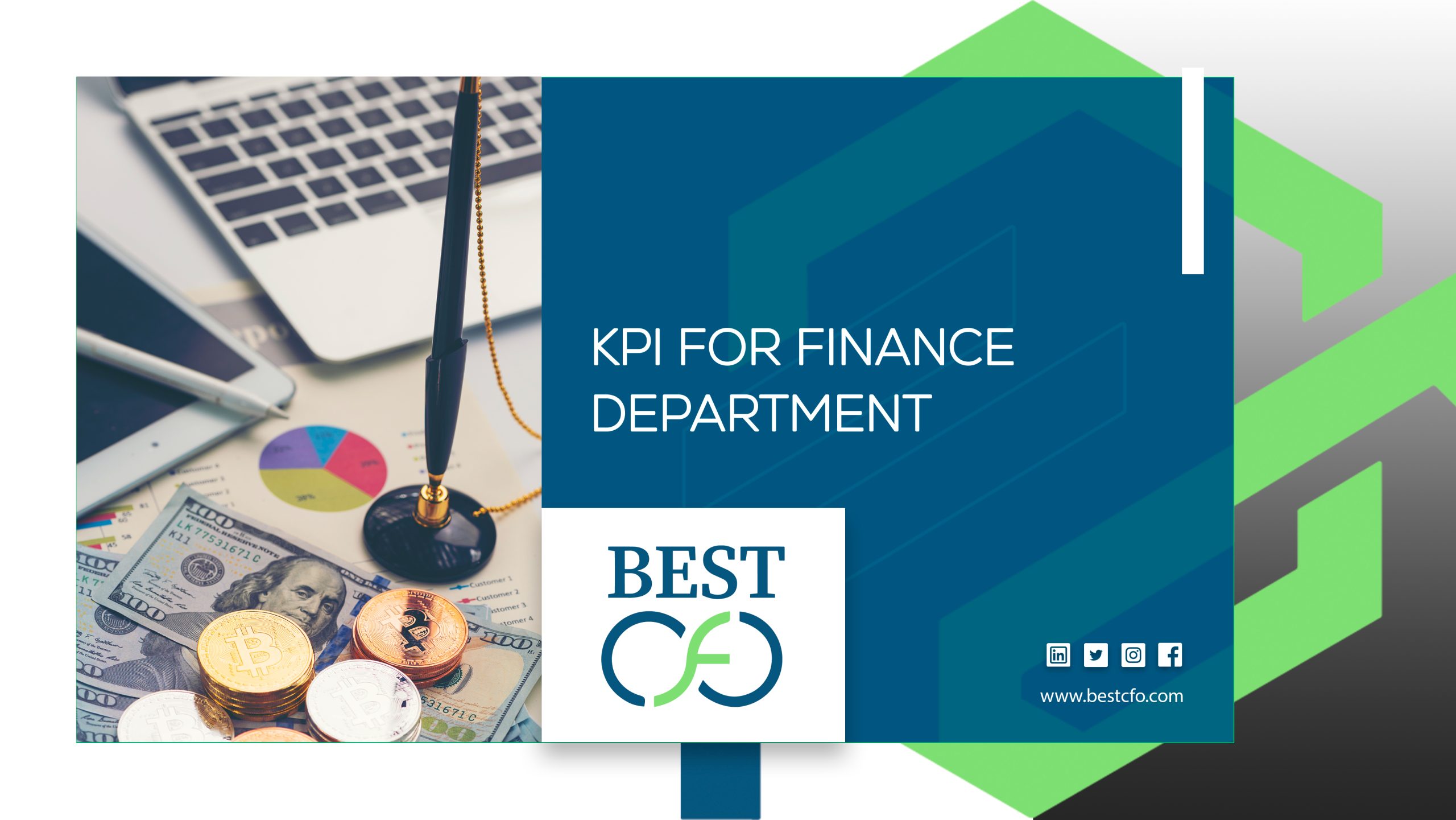
| Getting your Trinity Audio player ready... |
What Are the Most Important KPI For Finance Department To Track
In today’s fast-moving economy, every business needs to keep a close eye on its numbers. Key performance indicators—or KPIs—are thus useful here. Particularly for the finance department, KPIs are quite important in assessing performance, controlling funds, and future planning. Tracking the appropriate KPI for finance department helps companies stay on course, prevent risks, and make wise choices.
This blog will look at what KPIs are, why they are important, the difficulties of applying them, and the top 15 KPIs every finance team should be aware of.
Understanding the Key Performance Indicators (KPIs)
A KPI is a figure or value indicating the performance of a team, a project, or a company. For the finance department, KPIs assist in measuring incoming and outgoing money, the speed of payment, the usage of the budget, and so on. The indicators reveal the health of the company at a glance.
Why Are KPIs Important in the Finance Department?
Here are a few aspects you need to know about why KPIs are important for the finance department:
Performance Measurement
KPIs enable teams to monitor their performance in daily activities—such as managing accounts payable, gathering receipts, or processing invoices. Should anything be amiss, the KPI can indicate an early issue.
Strategic Alignment
Finance KPIs keep goals in line with the company’s larger plan. This way, every dollar spent supports the business’s bigger strategy.
Informed Decision-Making
With the right KPIs, leaders can make smarter choices. Good data means better decision-making—whether it’s about a budget, a new investment, or cutting an expense.
Risk Management
By watching financial KPIs, teams can find and fix problems before they get worse. This is key in strong risk management.
Improved Accountability
KPIs make it clear who is doing what. They help create accountability across the finance team and encourage productivity.
Benchmarking
Tracking KPIs also facilitates benchmarking—comparing your figures to others in the sector, or to your historical performance. This helps identify methods to enhance processes and outcomes.
Why It Is Important To Track Finance KPIs
Let’s look deeper into how financial KPIs support a business beyond daily tasks.
The Role of Financial KPIs in Strategic Planning
KPIs serve as a dashboard for managers. They inform planning and keep teams aimed in the correct direction. Strategic planning without KPIs is guesswork.
The Role of Economics in Corporate Strategy
Imagine being in business without understanding your revenue or your debt. Finance KPIs translate numbers into insights. From them, leaders will know if they should invest, trim expense, or attempt something new.
The Relationship Between KPIs and Overall Business Performance
- Guiding Strategic Planning: Coordinating daily activities with long-term business objectives.
- Influencing the Decisions: Short and long-term decisions are informed by data from the KPIs.
- Improving Business Performance: Good KPIs enhance financial stability, growth, and profitability.
- Recognizing Trends: Early identification of patterns in expense, sales, or cash flow enables quick adaptation.
- Risk Mitigation: Early warning signals via KPIs safeguard against bad investments or financial risk.

Challenges in Tracking and Implementing Finance KPIs
Even though KPIs are helpful, they come with challenges.
Data Accuracy and Integrity
If the data is wrong, the KPI is useless. Finance teams need strong data management and accuracy tools.
Selecting Relevant KPIs
Not every KPI fits every company. Picking the wrong ones can lead to wasted effort and confusion.
Overload of Information
Too many numbers can feel like information overload. Focus only on what truly matters.
Resistance to Change
Some teams may not want to change how they work. Getting people on board with new tracking methods takes effort and good communication.
Lack of Skills and Resources
You need people who understand analytics, finance, and technology to make the most of KPIs. Not all companies have these resources in place.
Top 15 KPI For Finance Department
Finance KPIs fall into five main categories indulde:
- Holistic Close
- Close Monitoring
- Balance Sheet Reconciliation
- Journal Entry
- Compliance
Let’s break them down:
Holistic Close KPIs
These KPIs measure the overall financial close process.
- Profit and Loss: Tracks whether your business is making or losing money.
- Process Cost: Measures how much it costs to complete a process—helps improve efficiency.
- Time to Close: How quickly the books are closed at the end of a period.
- Close Quality: How accurate and error-free your financial statements
Close Monitoring KPIs
Keeps track of key tasks during the close process.
- On-Time Critical Path: Whether major tasks are finished on time.
- Comparability: Ensures that reports are consistent and can be compared over time.
- Issue Management: Tracks how many problems come up and how fast they are fixed.
Balance Sheet Reconciliation KPIs
Checks that accounts match and errors are caught.
- On-Time Reconciliations: Are all accounts matched by the deadline?
- Number and Aging of Reconciling Items: Tracks how many items are outstanding and for how long.
- Percentage of Automated Reconciliations: Shows how much of the process is handled by automation.
Journal Entry KPIs
Tracks how journal entries are made and approved.
- Automated Journal Entries: How many entries are completed with little or no manual work?
- Timely Journal Approval: Are entries reviewed and signed off on time?
- Journal Entry Quality: Checks for mistakes or missing details.
Compliance KPIs
Makes sure laws and rules are followed.
- Cost of Compliance: How much is being spent to stay within the law?
- Test Rate: How often internal checks are done to catch mistakes or fraud.
Conclusion
Tracking the right KPI for finance department is more than a numbers game—it’s a way to lead your business with clarity, reduce risk, and reach your goals faster. From checking profit and loss to improving journal entry quality, each metric plays a role in stronger financial management.
Whether you’re in corporate finance, accounting, or part of the leadership team, KPIs help create a clear path forward. They boost accountability, help spot problems early, and guide better choices.
If you want to take your finance team to the next level, try out Best CFO—a smart tool built to simplify KPI tracking, improve performance, and make your financial planning smoother.
FAQs
1: What is a KPI in the finance department?
A KPI is a number or ratio that helps track how well the finance department is doing. It covers things like cash flow, expenses, profit, and more.
2: Why are finance KPIs important?
They help leaders make smart choices, reduce risk, and manage money wisely. They also support strategic planning and boost transparency.
3: What are the most important KPIs in finance?
Some top KPIs include profit and loss, time to close, on-time reconciliations, and cost of compliance.
4: How do KPIs help in decision-making?
KPIs show real-time data, helping teams make fast, smart decisions based on facts—not guesses.
Related Posts
From Finance to Future-Proofing: The Strategic CFO for IT
From Finance to Future-Proofing: The Strategic CFO for IT Suppose a traditional CFO sitting at…
CFO vs Finance Manager: Choosing The Right One For You
CFO vs Finance Manager: Choosing The Right One For You The finance world can be…
When Should You Outsource My CFO? – The Guide
When Should You Outsource My CFO? – The Guide Every business, no matter how small…
Top 5 Reasons Why You Should Outsource HR
Top 5 Reasons Why You Should Outsource HR Outsourcing is gaining popularity among businesses looking…
 Demos
Demos  Colors
Colors  Docs
Docs  Support
Support 










